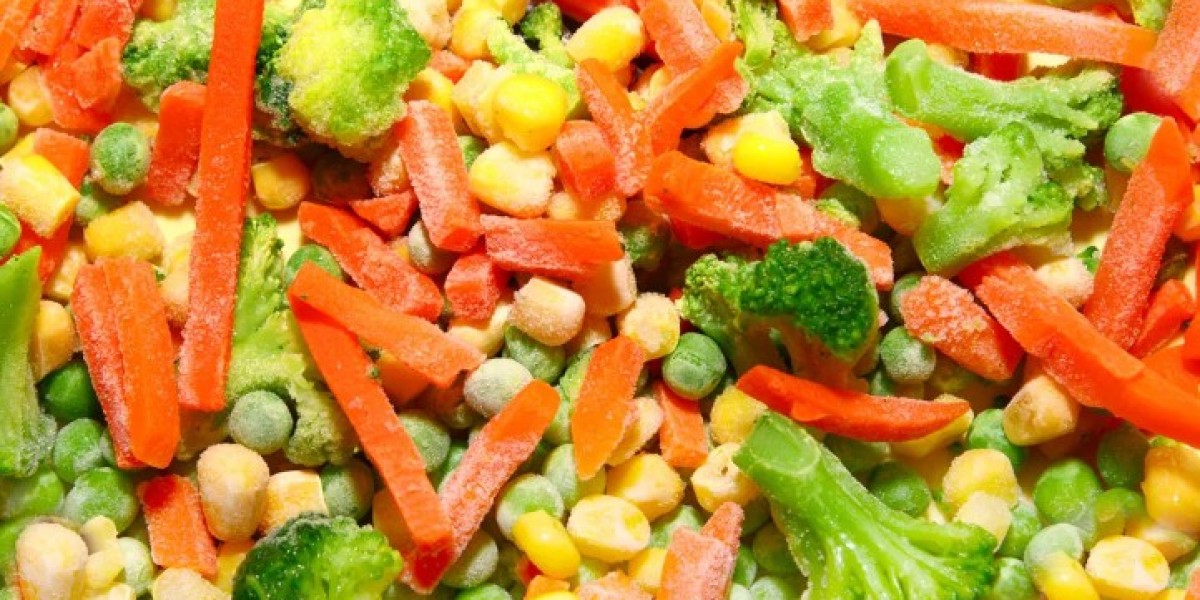As the demand for organic foods continues to surge, frozen organic products are gaining popularity among health-conscious consumers. Once considered second to fresh produce, frozen organic foods are now recognized for their convenience, affordability, and nutritional value. Here’s a closer look at the benefits of choosing frozen organic products and tips on selecting the best options for you and your family.
1. Why Choose Frozen Organic?
Nutritional Integrity: Freezing organic fruits and vegetables shortly after harvest preserves their vitamins and minerals, which can degrade in fresh produce over time. Research has shown that certain frozen fruits and vegetables may retain higher levels of nutrients than those that have been stored fresh for extended periods.
No Preservatives Needed: Because freezing naturally preserves foods, organic frozen products typically don’t contain added preservatives, sugars, or salts. This makes them a healthier option compared to many canned or processed foods that often include additives.
Reduced Waste: Frozen organic products have a longer shelf life than fresh produce, reducing the risk of spoilage and food waste. This is especially helpful for those who want to keep organic options on hand but don’t have time to shop frequently.
2. The Variety of Frozen Organic Products
Frozen organic foods extend beyond basic fruits and vegetables. Here are a few examples of what you can find:
- Frozen Organic Vegetables – Options like spinach, broccoli, peas, and carrots are versatile ingredients that can be quickly added to soups, stews, and stir-fries.
- Frozen Organic Fruits – Berries, mango, and tropical fruit mixes are perfect for smoothies, desserts, or even as toppings for breakfast bowls.
- Organic Frozen Meals – For those with limited time, many companies offer organic, nutrient-rich meals, from vegetable-based bowls to grain and protein options.
- Organic Frozen Meats and Fish – Many stores now offer organic, grass-fed, or sustainably sourced frozen meat and fish products.
3. The Environmental Impact of Frozen Organic Foods
Opting for frozen organic products can be beneficial for the environment in several ways. Frozen foods are often transported in bulk, reducing carbon emissions per unit. Additionally, fewer resources are needed for storage compared to fresh produce that requires regular deliveries to maintain freshness.
Frozen foods also help extend the accessibility of seasonal organic produce year-round, reducing the need to import out-of-season produce and supporting local farmers.
4. Tips for Choosing High-Quality Frozen Organic Products
When selecting frozen organic items, consider these tips for quality and flavor:
- Check for Certifications: Look for USDA Organic or similar certification to ensure the product meets organic standards.
- Avoid Added Ingredients: Select items with minimal or no added sugar, salt, or preservatives to keep your meals as healthy as possible.
- Inspect the Packaging: Damaged packaging or frost on the product can be signs of freezer burn, which affects taste and texture.
5. How to Incorporate Frozen Organic Foods into Your Meals
One of the most appealing aspects of frozen organic products is their versatility in cooking:
- Smoothies and Juices: Using frozen organic fruits in smoothies ensures a thick texture and chilled flavor.
- Quick Stir-Fries and Soups: Keep a variety of frozen organic vegetables on hand for quick meals.
- Baking: Frozen fruits like blueberries, strawberries, or peaches can add a flavorful twist to muffins, breads, and other baked goods.
The Future of Frozen Organic Foods
The market for frozen organic products is expected to grow as consumers prioritize health and convenience. With more people becoming mindful of their food choices, innovations in organic farming and freezing techniques are likely to drive an even broader selection of high-quality frozen organic options.
Frozen organic products offer an excellent blend of convenience, affordability, and nutrition without sacrificing quality.










